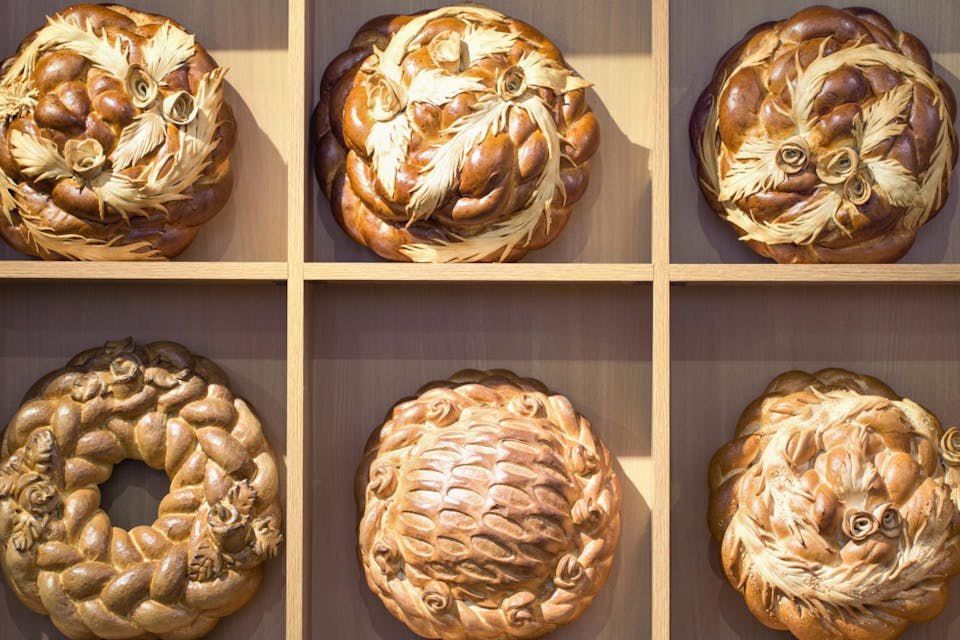
September 4, 2019
It’s the Circle of Bread
The circular, braided bread known as challah has a twin. It originated in Greece, was picked up by Mediterranean Jews, traveled with them to Europe, and possibly back to Greece.
Debbie Prinz has inquired about the Yiddish word koyletsh. Relating what she knows about it, she writes:
From my research, I have ascertained that a koyletsh is a festive, braided challah traditionally prepared by Ashkenazi Jews for holidays (especially Purim) and weddings, at which there was a dance called a koyletsh tants. Some note the possible Greek origin of the word from kollix, a round loaf baked for Christian purposes. This then entered Slavic languages. In Eastern Europe, the word denoted a tall bread or cake baked for Easter or a sweet, braided, round one served on Christmas.
Some sources note that the great 11th-century exegete Rashi refers to a koyletsh in his commentary on the Talmud (P’saḥim 48b). Though he spent much of his life in northern France, Rashi studied and lived for several years in the Rhineland, where he may have come across the word.
Is there anything else that I don’t know?
I’ll try to add what I can, starting with Greek kollix. Apart from its being a kind of bread, not everyone agrees on what it was. The word’s earliest appearance on record is in Aristophanes’ comedy The Acharnians, which won first prize at a theater festival in Athens in 426 BCE. In this play the main character, the Athenian citizen Dicaeopolis, encounters a rustic peddler from the province of Boeotia, west of Athens, who approaches him with his wares. “O khaire, kollikophage Boiotidion,” Dicaeopolis greets him, which has been variously rendered by different translators as “Welcome, dear Boeotian muffin-eater!” (Benjamin Bichley Rogers); “’Tis well, my scone-fed friend!” (Robert Yelverton Tyrell); “A Boeotian! Bread-stick lovers one and all! Welcome!” (George Theodorides); and “Ah! Good day, Boeotian, eater of good round loaves!” (the anonymously translated Internet Classics’ Archives version).